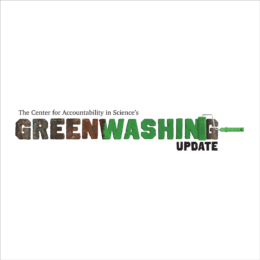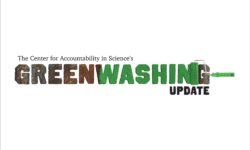Cotton Bags Are Greenwashing

Cotton tote bags have long been considered the eco-friendly alternative to plastic shopping bags. But as with many so-called “eco-friendly alternatives,” cotton bags may be worse than the problem they claim to solve.
According to a 2018 study from the Ministry of Environment and Food of Denmark, an organic cotton bag needs to be reused 20,000 times before it becomes less harmful to the planet than a single-use plastic bag. For those who don’t have a calculator handy, that means the cotton bag must be used daily for 54 years to break even. And that is just one bag. It remains to be seen if a cotton bag could even withstand 54 years of daily use.
There are many reasons why cotton bags are detrimental to the planet. To start, cotton plants require a lot of water and they can be difficult to grow. According to the New York Times, most cotton used by the western fashion industry is grown in Xinjiang, China. (That is the region of China where the Chinese Communist Party has detained the Uyghur Muslims, many of whom are forced to work in the cotton fields.) Beyond human rights atrocities, China is known for polluting the planet and its cotton harvesting is almost certainly not done in the most efficient way possible.
Cotton makes up just 2.4 percent of the world’s crops, but a quarter of the world’s insecticides are used on cotton. Similarly, 10 percent of all agricultural chemicals are used on cotton. Cotton must be transported (by fossil-fuel-powered engines) from China to textile mills, some in China and some elsewhere. The textile mills in China are pollution machines. A study from Yale Environment 360 found that China pumps 40 percent of the chemicals used in textile factories into rivers which eventually reach the sea. If the cotton is not used in a textile mill in China, it is often exported to Bangladesh, Vietnam, Pakistan, or the Philippines — all countries that have a similarly troubling environmental record.
After the textiles are made, they are loaded onto cargo ships. In a single year, just one cargo ship produces as much cancer- and asthma-inducing pollutants as 50 million cars.
If cotton bags are so harmful, how did they become greenwashed into the planet-friendly plastic bag alternative? The answer: misleading marketing from environmentalists.
The New York Times reported that the spike in production of cotton bags was caused by a designer in 2007 who sold cheap bags throughout the United Kingdom that stated: “I’m not a plastic bag.” The bags were trendy and people felt good about buying the bags because they thought they were reducing pollution.
Now, the bags are everywhere. One woman told the New York Times that she had 25 bags in her most recent count — many of which were given to her without her asking. Assuming the cotton was organically grown, using the Danish study, her bag collection could be used for 1,000 years before breaking even with plastic bags.
These misguided campaigns are not exclusive to plastic bags. Many plastic products are being swapped out with alternatives that must be used dozens of times — or much more — to break even. Metal straws, for example, must be used 150 times to break even with the often-demonized plastic straw.
When it comes to alternative single-use bottles, many have as many hidden environmental risks as plastic.
Glass bottles are significantly heavier than plastic, requiring more fuel for transportation. Glass is also much more energy-intensive to produce. A study from the Centre for Environmental Policy at Imperial College London found that replacing all single-use plastic bottles with glass would result in the emission of the equivalent amount of carbon dioxide of 22 large coal-fired power plants.
Aluminum can production results in the emission of twice as much carbon dioxide as plastic bottles. Aluminum is also sourced from toxic bauxite strip mines which pollute rivers and give fatal respiratory diseases to nearby communities.
Right now, the only talking point coming out of the environmental movement is: “Plastic is bad.” But that doesn’t paint a clear picture of the reality of the situation. Certainly, mismanaged plastic can harm the environment, but many of the proposed alternatives are significantly worse.
The tunnel-vision attacks on plastic ignore the broader consequences of products like plastic bags — which only became popular because of the phrase “this is not a plastic bag.” But just because something “isn’t plastic” does not mean it is better for the planet than plastic.
This is the eighth report in a series about companies “greenwashing” products to make them appear to be better for the environment than they actually are. You can read our other greenwashing reports here. Keep an eye on the Periodic Fabels blog for future updates to the series.


